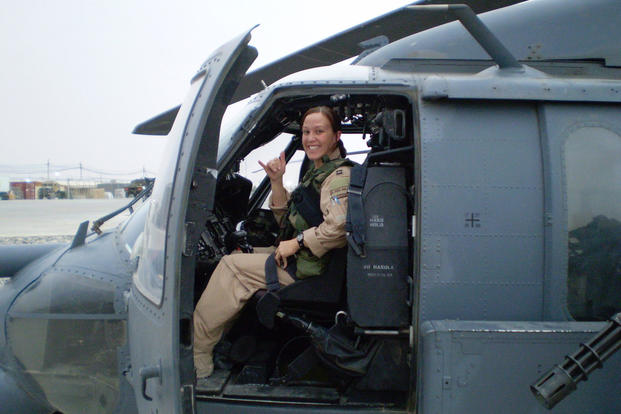A group of veterans representing both parties is trying to edge out longtime incumbents in tough-fought races this Election Day. That could bring about major changes when it comes to policies affecting troops, veterans and their families.
Mary Jennings "MJ" Hegar, Dan Crenshaw and Bob Hugin are just some of the veterans trying to get elected into the 116th Congress. Just as seeing Democrats take control of the House could bring sweeping change to Washington, so could a new crop of vets who'd bring new priorities to the job.
With major defense projects in flux -- such as the creation of a new Space Force and the buildup to a 355-ship Navy -- changes in Congress could halt or upend big military priorities set by the Trump administration. New veteran lawmakers could lead to real shakeups on major congressional committees responsible for shaping those policies, said Jeremy Teigen, a political science professor at Ramapo College and author of "Why Veterans Run: Military Service in American Presidential Elections, 1789-2016."
And just as female members of Congress tend to promote women's issues, it's likely that vets in Congress could spur change on major defense- or veteran-related legislation, added Danielle Lupton, a political science professor with Colgate University in New York.
Of course, no two veterans will bring a cookie cutter-like approach to the job, but here are trends experts anticipate if more post-9/11 veterans head to the Hill.
A unique perspective.
With so few Americans serving in uniform these days, lawmakers who have bring a level of defense expertise some say has been lacking in recent years as the percentage of vets in Congress plummeted.
That can give voters a big boost of confidence in a candidate, said Ellen Zeng, political director for With Honor, a cross-partisan organization that worked to get more vets elected this year.
"If you look at satisfaction levels, there are metrics that show how confidence in government is an all-time low," she said. "People have lost trust in government. ... But at the same time, the military is one of the last institutions where there is still a lot of trust."
Some of that trust can be rather superficial though, Teigen said. Research by him and others has shown that a mere mention of military service in a campaign ad can lead voters to assume veterans have what it takes to resolve complex foreign-policy issues.
"It's similar to when doctors run, and you think they're going to be able to fix health care problems," he said.
Some are willing to speak out.
Sen. John McCain, the longtime Arizona Republican senator who died in August, was known for sharply questioning military policy during his six terms in office. Now, younger veterans in Congress are showing a willingness to follow in the maverick's footsteps, even if it means taking on their own parties, said Teigen, who's also a former airman.
Rep. Seth Moulton, a Massachusetts Democrat and veteran Marine officer who served in Iraq, has said his party needs new leadership. And Sen. Tammy Duckworth, D-Ill., has used her wartime experience to press military brass about complex policies.
"On average though, it'd be tough to generalize [and say all veterans are mavericks] because with every Seth Moulton, you have a Tom Cotton," Teigen said of the Army veteran and Republican senator from Arkansas who has aligned himself with President Donald Trump.
Rep. Tulsi Gabbard, a Hawaii Democrat who served in her state's National Guard, also hasn't been overly willing to speak out, he added.
So while veterans in Congress share a "powerful common experience," Teigen said, don't expect them all to be like McCain.
They're a check on the president.
Just as some vets in Congress are willing to stand up to other senators and representatives, there's evidence that shows they're also willing to take on the executive branch.
That's true even when the president comes from their own party, Lupton said.
"Veterans in Congress tend to ask more about when do we use military force abroad and how do we substantively use military force," she said. "They tend to vote for more oversight of the president and executive branch and, once troops are involved somewhere, they want more intel about what's going on down on the ground."
They look out for each other.
More vets in Congress could mean a stronger veterans' caucus -- something Zeng's organization was advocating for when it endorsed about 40 veterans running for Republican and Democratic seats this year.
"We're trying to create a veterans caucus with enough mass where in a divided Congress ... they can really work on these issues in a joint way," she said. "The goal is to try to get at some of this polarization."
Members of Congress are sometimes able to work through a problem if they share a common background, Zeng added.
But in today's divided climate, Teigen said, veterans could still face an uphill battle in reaching across the aisle.
"If anyone can, [veterans] can, but that's certainly a tall order," he said. "Washington is rigged for this. So will a stronger veterans' caucus on Capitol Hill be able to be more than a symbolic effort? I sure hope so, but the underlying incentives [run against that]."
-- Gina Harkins can be reached at gina.harkins@military.com. Follow her on Twitter at @ginaaharkins.












